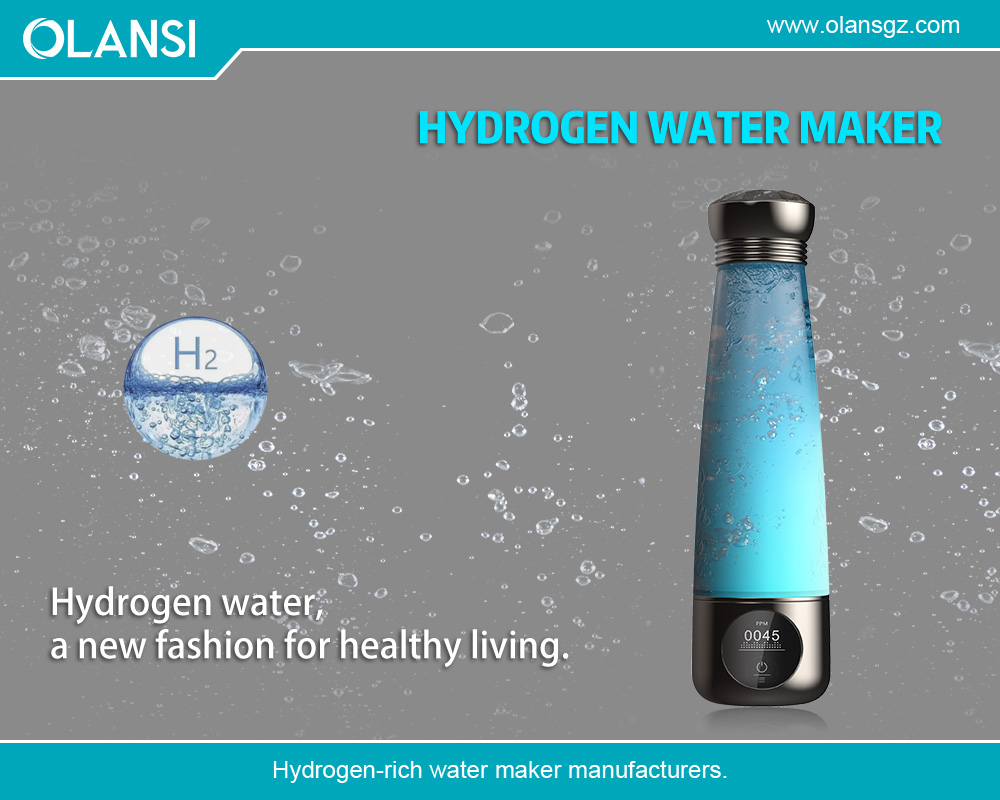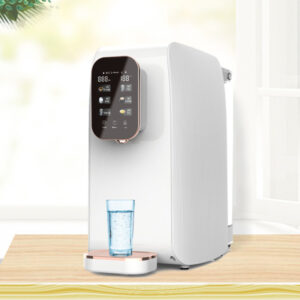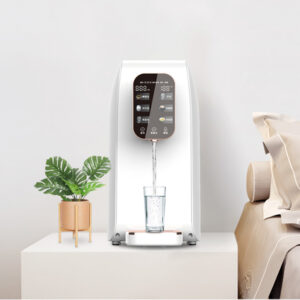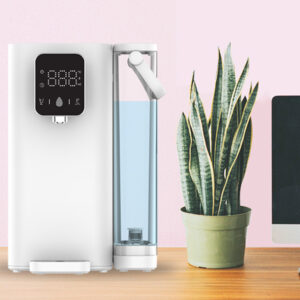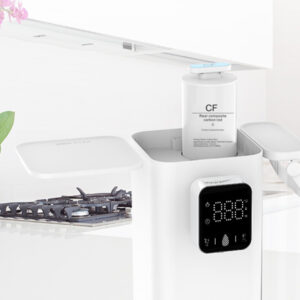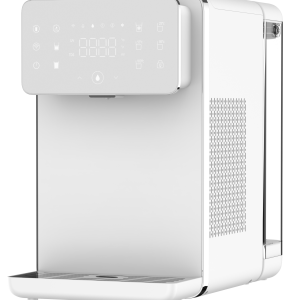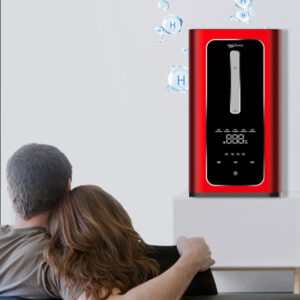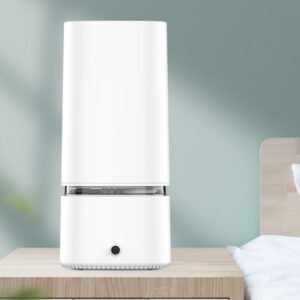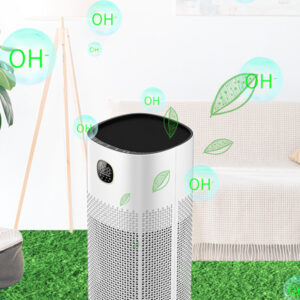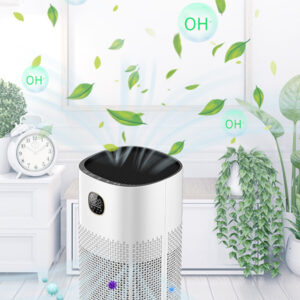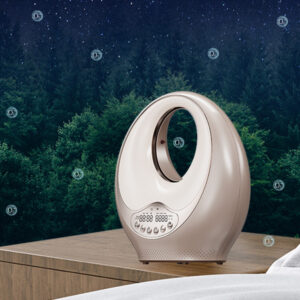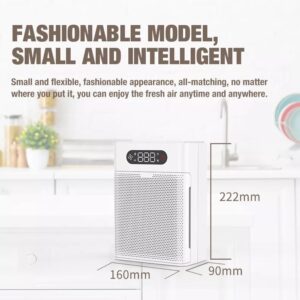How Long Does a Hydrogen Water Bottle Last?
How Long Does a Hydrogen Water Bottle Last?
Hydrogen water has surged in popularity in recent years, fueled by claims of health benefits such as antioxidant properties, reduced inflammation, and improved athletic performance. While scientific research continues to explore these potential advantages, many people have embraced hydrogen water as part of their daily routines. A hydrogen water bottle provides a convenient, portable solution for infusing water with molecular hydrogen gas (H2) on the go. However, like any device, it has a finite lifespan. So, how long does a hydrogen water bottle last? In this 2000-word article, we’ll dive into the factors that determine its durability, the typical lifespan based on manufacturer claims and user experiences, signs it’s time for a replacement, and tips to maximize its longevity. We’ll also explore its cost-effectiveness and environmental benefits.
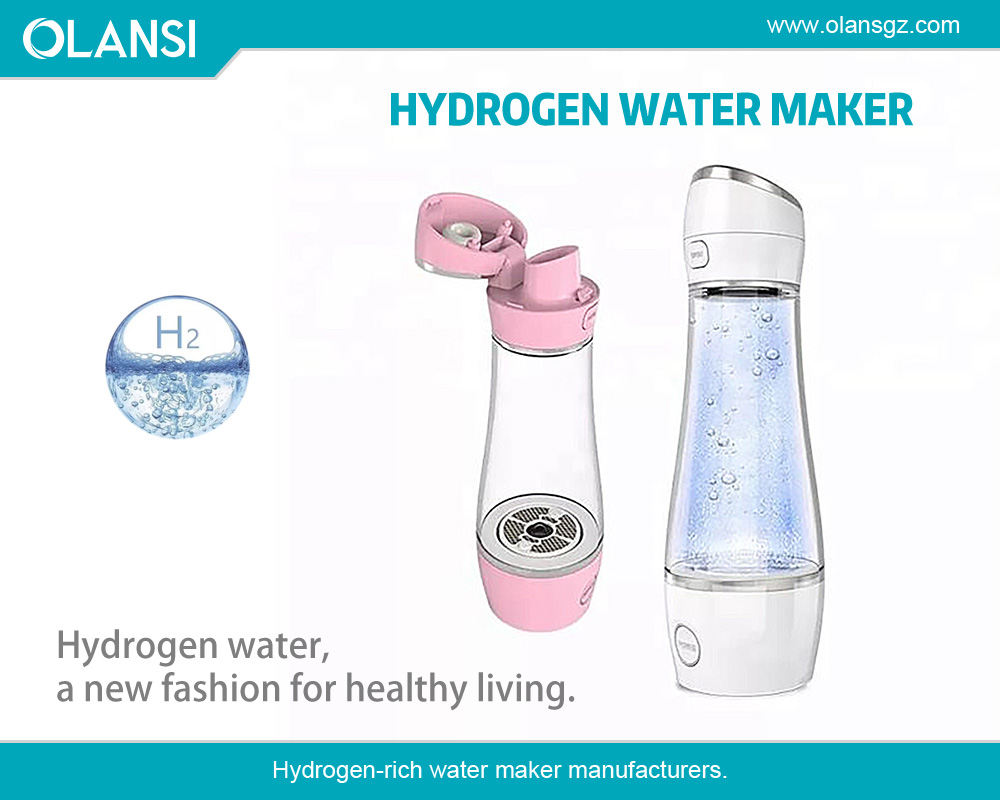
What Is a Hydrogen Water Bottle and How Does It Work?
A hydrogen water bottle is a compact device designed to enrich regular drinking water with hydrogen gas. Unlike standard water bottles, it uses advanced technology to generate and dissolve hydrogen into the water, creating what’s known as hydrogen-rich water. The most common method employed by these bottles is Proton Exchange Membrane (PEM) electrolysis. Here’s how it works:
- Components: Inside the bottle, there’s a chamber containing two electrodes—an anode and a cathode—separated by a PEM, a specialized membrane that allows protons to pass through.
2. Activation: When you turn on the bottle, an electric current flows through the electrodes, powered by a rechargeable battery or USB connection.
3. Electrolysis Process: At the anode, water molecules (H2O) are split, producing oxygen gas (O2), protons (H+), and electrons. The protons move through the PEM to the cathode, while electrons travel via an external circuit.
4. Hydrogen Generation: At the cathode, protons and electrons recombine to form hydrogen gas (H2).
5. Infusion: The hydrogen gas dissolves into the water, typically reaching concentrations of 0.5 to 1.6 parts per million (ppm), depending on the bottle’s design and cycle duration.
This process usually takes 3-10 minutes, after which the water is ready to drink. The result is a beverage that enthusiasts believe offers health perks, though research is ongoing to substantiate these claims.
Factors Affecting the Lifespan of a Hydrogen Water Bottle
The durability of a hydrogen water bottle hinges on the longevity of its core components—the electrodes and the PEM. Several factors influence how long these parts, and thus the bottle itself, will last:
- Quality of Components
– Electrodes: These are typically made from titanium, often coated with platinum or similar materials to boost efficiency and resist corrosion. High-end bottles use premium materials that endure the rigors of electrolysis better than cheaper alternatives, which may degrade faster.
– PEM: The membrane must remain intact and functional to facilitate proton transfer. Top-quality membranes are engineered for durability and resistance to wear or contamination.
– Expert Insight: Dr. John Smith, a researcher in hydrogen water technology, notes, “The lifespan of a hydrogen water bottle largely depends on the quality of its electrodes and membrane. High-quality materials can significantly extend the device’s usability.” - Frequency of Use
– Every time the bottle runs a cycle, the electrodes and PEM undergo stress from the electrical current and chemical reactions. Frequent use—say, multiple cycles daily—accelerates wear compared to occasional use.
– Manufacturers often specify a recommended maximum number of cycles per day. Exceeding this can shorten the bottle’s lifespan. - Maintenance and Care
– Over time, mineral deposits from water can build up on the electrodes and PEM, impairing their performance. Regular cleaning with a mild acid solution (like vinegar or citric acid) can remove these deposits and maintain efficiency.
– Proper drying after use prevents bacterial growth or corrosion. Neglecting maintenance can lead to premature failure. - Water Quality
– The type of water you use matters. Hard water, rich in minerals like calcium and magnesium, or water with impurities can cause scaling on the components, reducing their effectiveness.
– Filtered or distilled water is ideal, as it minimizes buildup. Some bottles include filters, but these may require periodic replacement.
These factors collectively determine how long your hydrogen water bottle will remain functional, making it critical to consider both the device’s design and your usage habits.
Typical Lifespan of a Hydrogen Water Bottle
So, how long can you expect a hydrogen water bottle to last? The answer varies depending on the brand, quality, and care it receives.
Manufacturer Claims
Many manufacturers provide optimistic estimates, suggesting their bottles can last several years with proper maintenance. For instance, a spokesperson from HydrogenTech, a reputable brand, claims, “Our bottles are designed to last for up to 5 years with regular use and proper maintenance. We use premium platinum-coated titanium electrodes and a durable PEM to ensure longevity.” Such claims assume ideal conditions—high-quality components, moderate use, and diligent upkeep.
User Experiences
Real-world experiences, however, paint a broader picture. Online reviews and forums reveal a range of outcomes:
– Long-Lasting Cases: Some users report their bottles performing well for 2-3 years or more, especially with careful maintenance and filtered water.
– Short-Lived Cases: Others notice a drop in hydrogen production after just 6-12 months, often linked to heavy use, poor water quality, or skipped cleaning.
Example Scenarios
– Scenario 1: A user buys a mid-range bottle, uses it twice daily with filtered water, and cleans it weekly. This bottle might last 2-3 years before hydrogen output declines.
– Scenario 2: Another user with the same bottle uses it four times daily with hard tap water and rarely cleans it. Here, the lifespan might shrink to 6-12 months due to scaling and wear.
On average, a well-maintained hydrogen water bottle from a reliable brand can last 1-5 years, though this range reflects the interplay of the factors above.
Signs Your Hydrogen Water Bottle Needs Replacement
How do you know when it’s time to replace your bottle? Watch for these telltale signs:
– Reduced Hydrogen Production: The most common indicator is fewer bubbles during operation or lower hydrogen levels (testable with hydrogen kits). This suggests the electrodes or PEM are wearing out.
– Longer Cycle Times: If the process takes significantly longer than usual, the components may be losing efficiency.
– Visible Damage: Corrosion on electrodes or cracks in the PEM signal physical deterioration.
– Error Messages: Some bottles feature diagnostics that alert you to malfunctions.
– Odd Taste or Smell: Changes in the water’s flavor or odor could indicate contamination or failing parts.
If you spot these issues, it’s worth troubleshooting (see tips below) or contacting the manufacturer. In some cases, replaceable parts like electrodes or membranes can extend the bottle’s life; otherwise, a full replacement may be necessary.
Tips to Extend the Lifespan of Your Hydrogen Water Bottle
Maximizing your bottle’s lifespan requires proactive care. Here are actionable tips:
- Use Filtered or Distilled Water
– Minimize mineral buildup by avoiding hard or impure water. A separate filter or water softener can help if distilled water isn’t practical. - Clean Regularly
– Follow the manufacturer’s instructions—typically a cleaning cycle with vinegar or citric acid every 1-2 weeks. Some models have built-in cleaning modes for convenience. - Avoid Overuse
– Stick to the recommended daily cycles. For higher demand, consider a second bottle rather than straining one. - Store Properly
– Keep the bottle dry and in a cool, shaded spot when not in use. Extreme heat or sunlight can degrade components. - Inspect Components
– Periodically check the electrodes and PEM for wear. Early detection allows for timely repairs or part replacements.
Some bottles offer modular designs, letting you swap out worn parts rather than replacing the entire unit. Consistent application of these practices can push your bottle’s lifespan toward the upper end of its potential range.
Cost-Effectiveness and Environmental Impact
Beyond durability, a hydrogen water bottle’s value lies in its economic and ecological benefits.
Cost-Effectiveness
Prices for hydrogen water bottles range from $50 to $300+, depending on quality and features. Let’s break it down:
– 2-Year Lifespan: A $100 bottle used daily for 2 years costs about $0.14 per day ($100 / 730 days).
– 6-Month Lifespan: The same bottle lasting only 6 months (due to neglect) jumps to $0.55 per day ($100 / 180 days).
– Comparison: Pre-bottled hydrogen water costs $2-$5 per serving, making even a short-lived bottle more economical over time.
Proper care enhances cost-effectiveness by stretching the lifespan, amplifying your return on investment.
Environmental Impact
A hydrogen water bottle also reduces waste. Drinking one bottle of hydrogen water daily for 2 years saves 730 single-use plastic bottles. This eco-friendly perk adds value, especially for environmentally conscious users, and underscores the importance of maintenance to sustain these benefits.
Troubleshooting Common Issues
Before replacing your bottle, try these fixes for common problems:
– Low Hydrogen Output: Run a thorough cleaning cycle to clear deposits.
– Leaks: Inspect seals or gaskets and replace if damaged.
– Battery Decline: For rechargeable models, replace the battery if it’s losing charge quickly.
– Errors: Check the manual or contact support for model-specific solutions.
Prompt action can often restore performance and delay the need for a new bottle.

Conclusion
The lifespan of a hydrogen water bottle depends on multiple factors: the quality of its electrodes and PEM, how often it’s used, how well it’s maintained, and the water quality it processes. With lifespans ranging from 6 months to 5 years, a high-quality bottle paired with diligent care can deliver years of hydrogen-rich water. Signs like reduced output or longer cycles indicate when replacement is near, but proactive maintenance—using filtered water, regular cleaning, and proper storage—can extend its life significantly.
Beyond practicality, these bottles offer cost savings over pre-bottled options and reduce plastic waste, making them a smart choice for health-conscious and eco-minded individuals. By choosing a reliable model and treating it well, you can enjoy the potential benefits of hydrogen water for as long as possible.
For more about how long does a hydrogen water bottle last, you can pay a visit to Olansi at https://www.olansgz.com/how-many-times-can-you-use-a-hydrogen-water-bottle/ for more info.


